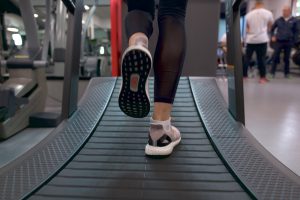
I have mild heel pain and thickening at the bottom of the Achilles tendon. I’m afraid it might rupture. What should I do?
What exercises and especially what foods should I eat to strengthen the tendon so I can continue with recreational tennis?
What exercises in the gym should I avoid and which are desirable?
Such inquiries are very common. They are based on three basic mistaken assumptions:
- That describing the symptoms is sufficient for diagnosis and prescribing therapy or preventive methods.
Heel pain can be caused by a variety of factors – from improper footwear, poor running technique, poor tennis stroke technique, lack of stretching, lack of warm-up, excessive training, shortened muscles, relatively weak muscles, postural deficiencies, and a whole range of others. Without a proper examination, it is not possible to make a diagnosis, assess the condition of the surrounding tissues and the body as a whole, and then give useful advice.
- That changing diet can be used for “strengthening” and specific prevention.
The most you can do is adjust your diet to your calorie expenditure and make it diverse, so that the body receives all the necessary nutrients for recovery. Everything you ingest that the body doesn’t need will be stored as reserve energy (fat) or excreted through sweat, urine, or stool. Terms like “superfood” are meaningless in the context of medicine and physiology but are entertaining reading on the internet. Dietary supplements are a special topic, and they are often not necessary for recreational athletes.
- That advice received by email or from Dr. Google is useful and you can immediately apply it to yourself.
For example, if I advise you on stretching exercises for the Achilles tendon, and you somehow learn the correct technique but perform them too intensively, you will worsen your symptoms. If you perform them too lightly, there will be no effect.
Because of all this, I recommend that you find an experienced sports physiotherapist in your area, who will examine you and advise on how to address and prevent the problem from recurring in your specific case.
